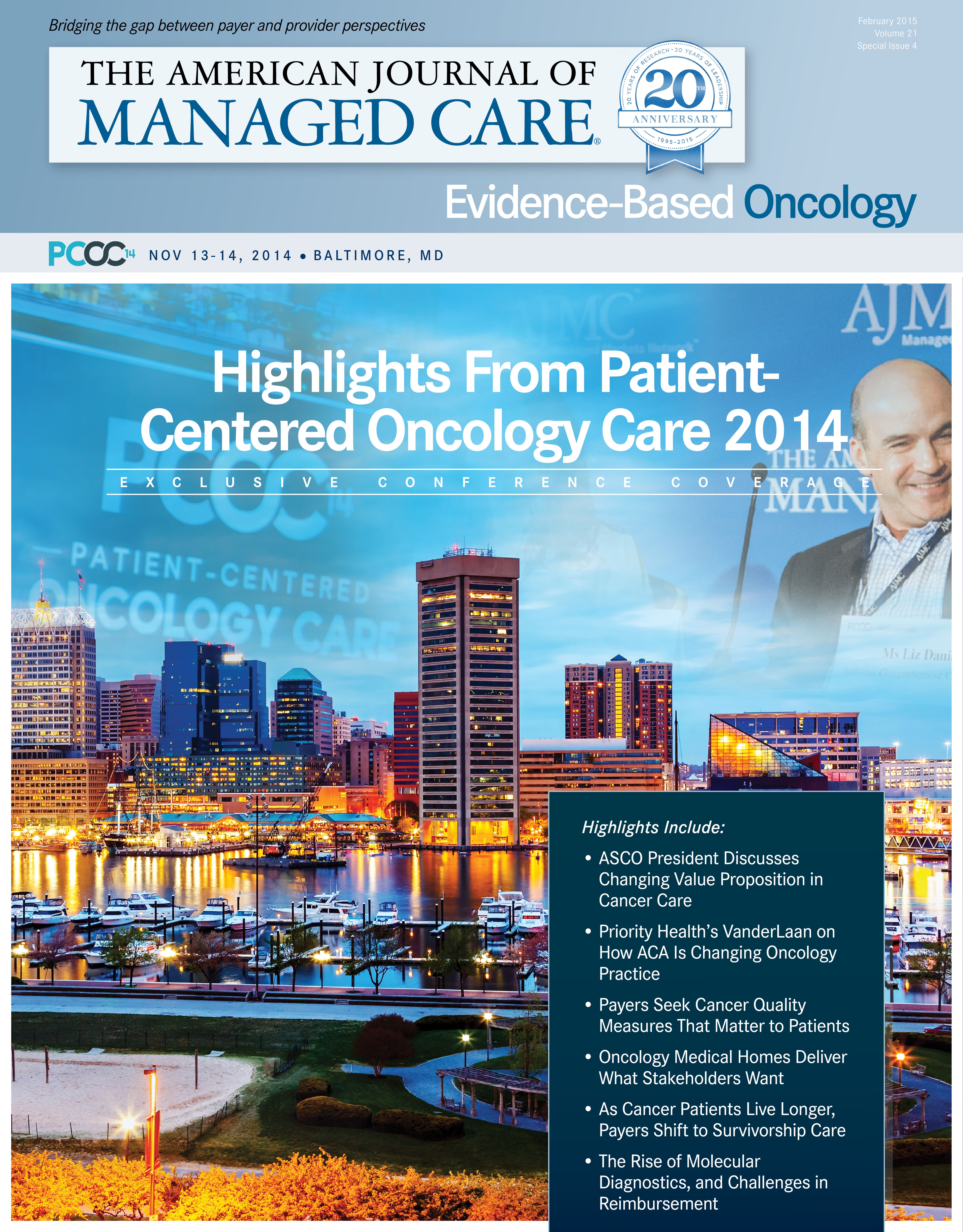- Center on Health Equity & Access
- Clinical
- Health Care Cost
- Health Care Delivery
- Insurance
- Policy
- Technology
- Value-Based Care
Medicare to Cover LDCT Screening for Lung Cancer
Certain patients can now receive Medicare coverage for lung cancer screening with low-dose computed tomography (LDCT), after CMS issued a national coverage determination (NCD) on February 5, 2015.1 Coverage is effective immediately.
The decision will allow Medicare beneficiaries to receive LDCT screening once a year if they meet all of the following criteria:
• They are age 55 to 77 years and are either current smokers or have quit smoking within the past 15 years.
• They have a tobacco smoking history of at least 30 pack years, which is at least a pack a day for 30 years. (If a person smoked 2 packs a day for 15 years that equals 30 pack years.)
• The person receives a written order from a physician or qualified nonphysician practitioner that meets certain requirements, which are contained in the NCD.1
According to a press release from CMS, coverage will include a visit for counseling on the benefits and risks of LDCT screening. The announcement also included requirements for data collection
and eligibility requirements for radiologists and imaging centers, consistent with the National Lung Screening Trial (NLST) Protocol.
The CMS announcement comes a little more than a year after the US Preventive Services Task Force (USPSTF) finalized its “B” recommendation for annual lung cancer screenings with LDCT; that recommendation was for adults ages 55 to 80 years who had smoked 30 pack years.2 USPSTF’s recommendation was based on results of the NLST, which found that patients who received screening had a 15% to 20% lower risk of dying from lung cancer; results published in 2013 showed that the targeted screening toward those at greatest risk produced the most effective results.3
However, the decision to pay for widespread screening is not without controversy. In a paper published in JAMA Internal Medicine in December 2014, authors SH Woolf, et al, expressly discouraged CMS from paying for screening. This is difficult under the Affordable Care Act, since the law requires commercial insurers to pay due to the B recommendation. The authors argued
that screening in the general population may not be limited to high-risk smokers outside a clinical trial, and may cause unnecessary harm due to radiation and false positives.
References
1. National coverage determination (NCD) for screening for lung cancer with low dose computed tomography (LDCT) [press release]. Baltimore, MD: CMS; February 5, 2015. http://www.cms.gov/Newsroom/MediaReleaseDatabase/Press-releases/2015-Press-releasesitems/2015-02-05.html.
2. Moyer, VA. US Preventive Services Task Force. Screening for lung cancer: US Preventive Services Task Force recommendation statement. Ann Intern Med. 2014;160(5):330-338.
3. Kovalchik SA, Tammenaqi M, Berq CD, et al. Targeting of low-dose CT screening according to the risk of lung-cancer death. N Engl J Med. 2013;369(3):245-254.
4. Woolf SH, Harris RP, Campos-Outcalt D. Lowdose computed tomography screening for lung cancer: how strong is the evidence? JAMA Intern Med. 2014;174(12):2019-2022.

Quality of Life: The Pending Outcome in Idiopathic Pulmonary Fibrosis
February 6th 2026Because evidence gaps in idiopathic pulmonary fibrosis research hinder demonstration of antifibrotic therapies’ impact on patient quality of life (QOL), integrating validated health-related QOL measures into trials is urgently needed.
Read More

